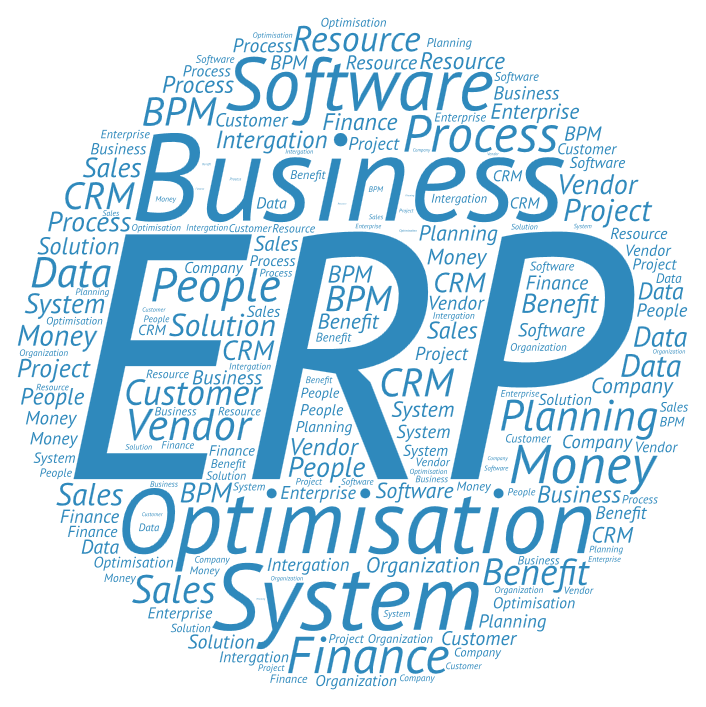ERP systems

As the name implies, the main purpose of ERP systems is enterprise resource planning. Properly configured ERP system will provide answers to questions like, "How was that?" and "How is it now?" as well as to "How will it be?", "How should it be?". Thus, all the data that are available in the system are not only used for accounting, but also for planning and optimization.
ERP system implementation is a long and complex process that requires meticulous preparation. There is a huge variety of ERP software packages and very few business owners venture to order the development of their own system, because time and cost may exceed the expected benefit. However, every decision deserves a thorough analysis, especially decision to improve business efficiency with the help of software.
The most important thing when choosing a suitable ERP system is the accurate positioning of the company. Depending on the industry, specialization and company size, IT industry offers solutions with different sets of modules. For example, well-known SAP ERP systems have specialized solutions for the finance industry, trade companies, manufacturing enterprises, commercial companies, and non-governmental organizations (health, education, etc.).
Within the last few years, major IT companies have been trying to meet the needs of not only large corporations, but also small businesses. For example, SAP Business One 9.0 ERP system, introduced in Russia in 2013, designed to automate small and medium-sized enterprises. Do not forget about the 1C systems, on the basis of which it is possible to create ERP modules.
As a result, owners of small and medium-sized businesses can easily afford to choose a suitable ERP system. However, it is important to understand what may be really improved by the ERP system, and what is beyond its capacity.
- ERP implementation will be useful for:
- planning enterprise material requirements;
- controlling timing and volume of deliveries;
- monitoring product availability, its excess and shortage;
- reducing the cost of storage products and materials;
- responding to changes in demand;
- controlling supply chain and quality of service.
Many expect from ERP systems much more than they can give. Fairly often, managers expect the system will:
- optimize business processes;
- reduce the staff;
- sort out the company problems.
We have tried to cover each of these points.
Business process optimization
In advance of any automation, it is necessary to analyze the enterprise and to optimize it BEFORE all the defects will be put in executable business processes. You should design processes according to the "to be" principle, not "as is".
Reducing the staff
It was felt that any automation involves replacing employees, which become redundant. However, the software is not able to operate without the people using it. ERP system is a tool that will help employees to work more efficiently, but will not replace them. This may become true only if the company is old and big and the number of staff is out of control, but in this case, it is necessary to pay attention to the following point.
Sorting out the company problems
No software can be a substitution of qualified managers. ERP system will help them to plan, regulate and control, but managers have to apply management techniques on their own.
To summarize, we would like to emphasize that only with a clear understanding of your business goals and needs you will be able to choose the suitable system the more so, that there are a lot of ERP-systems vendors (SAP, 1C, Oracle, Microsoft) in the Russian market. In this article, we have tried to collect the main reasons why it is worth to consider the implementation of the ERP-system, as well as give some tips on how to avoid disappointment in enterprise automation.












